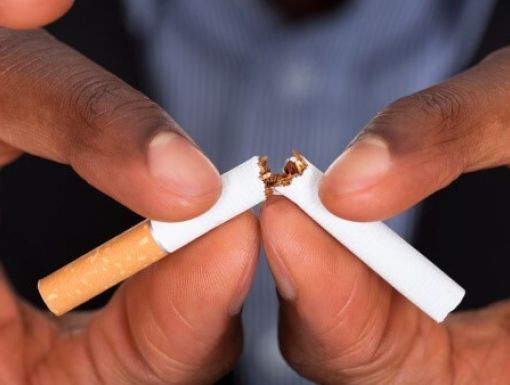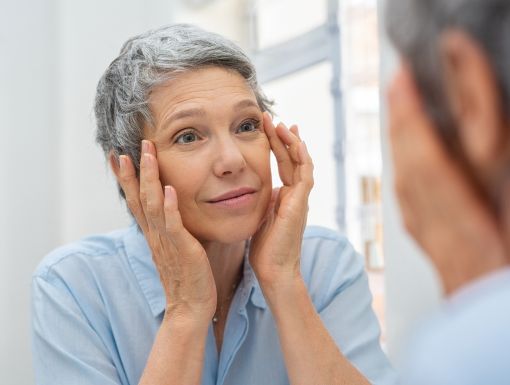
6 Top Ways Exercise Can Help You Quit Smoking
Quitting smoking is one of the best decisions you can make for your health, yet it’s no secret that the process can be challenging. For many, the fear of weight gain and stress becomes a deterrent, even when the desire to quit is strong. However, there’s a powerful tool that can help ease the transition to a smoke-free life while addressing these concerns: exercise.
Not only can exercise reduce stress and help control weight, but it can also play a critical role in reversing the damage caused by smoking.
Why do people gain weight after quitting smoking?
One of the most common concerns smokers have when considering quitting is weight gain. But why does this happen?
When you smoke, nicotine boosts your metabolism and acts as an appetite suppressant. A pack-a-day smoker can burn up to 200 extra calories because of this. Once you quit, your metabolism slows back to a normal pace, and your appetite returns. Suddenly, food tastes and smells better, making it more tempting to snack.
There’s also the psychological factor. Many ex-smokers mistake nicotine withdrawal for hunger, turning to food for comfort or to occupy their hands and mouths. On average, most people gain 10-12 pounds after quitting smoking. While this weight gain is generally not harmful, it can feel discouraging during an already challenging time.
Fortunately, it’s possible to prevent or minimize weight gain by incorporating exercise into your quit plan.
How does exercise support a smoke-free life?
Exercise doesn’t just help your waistline; it also targets many of the physical and psychological challenges smokers face when quitting. Here's how staying active makes the process smoother and more successful:
- Reduces stress: Stress is one of the leading triggers for smoking. Exercise naturally reduces stress levels by releasing feel-good endorphins, helping you cope more effectively.
- Offsets the calorie deficit: Physical activity increases calorie burning, making up for the metabolic boost you lose when you stop smoking.
- Reverses smoking damage: Regular exercise improves lung capacity, cardiovascular health and circulation, helping your body recover from years of smoking.
- Manages cravings: Even a short walk can significantly lessen cigarette cravings through distraction and mood-boosting effects.
- Improves mood and energy: Exercise combats the fatigue and irritability common during nicotine withdrawal, making you feel more in control.
- Strengthens overall health: By building stronger bones and muscles, physical activity counters some of the aging effects smoking accelerates.
The benefits are undeniable. But the good news is, staying active doesn’t require an extreme fitness routine.
How can you make exercise work for you?
If you imagine exercise means sweating it out for hours in a gym, think again! Incorporating physical activity into your life can be simple and gradual. Here are some practical tips for getting started:
Start small and build gradually
- If you’re new to exercise, begin with 15-20 minutes of walking per day.
- Gradually increase to 30 minutes of moderate-intensity activity, such as brisk walking, swimming or cycling.
- Listen to your body and go at a pace that works for you.
Sneak movement into your day - Even small bouts of movement throughout the day can make a difference. Try:
- Taking the stairs instead of the elevator.
- Parking farther away and walking a little extra.
- Taking a short walk whenever a craving hits.
Explore beginner-friendly activities - You don’t need to be an athlete to get active! Some excellent options for beginners include:
- Yoga or Pilates, which help improve flexibility and reduce stress.
- Swimming, a low-impact activity that boosts lung capacity.
- Dancing, which turns exercise into a fun activity you can look forward to.
Use exercise as a craving buster - When nicotine cravings strike, replace the automatic urge to reach for a cigarette with movement. Go for a brisk walk, do a few stretches or hit the gym. You’ll find that the physical activity distracts your mind while releasing endorphins to curb the craving.
What are the surprising rewards of an active lifestyle after quitting smoking?
Within weeks of staying active and quitting smoking, you’ll notice transformations beyond better health. You’ll feel stronger, more energetic and in control of both your body and your choices. It’s a double win that benefits your mind and body alike.
Here’s another perspective to consider: the cost of a month’s worth of cigarettes often exceeds the price of a gym membership. Quitting gives you the chance to redirect those savings into something that enhances your well-being, like fitness classes, workout gear or new hobbies.
The key is finding activities you genuinely enjoy and creating a routine you’ll stick to. Whether that’s hiking, joining a sports team or taking daily walks, every step you take gets you closer to a healthier, smoke-free future.
How can you set yourself up for success when quitting smoking?
Quitting smoking is a challenging but life-changing experience, and you don’t have to do it alone. Combining regular exercise with expert support dramatically boosts your chances of success.
With Ochsner’s Smoking Cessation Services, we understand how difficult it is to quit tobacco, and we’re here to help you every step of the way. Our free program offers personalized counseling from certified tobacco treatment specialists, along with guidance on effective strategies, diet, and exercise to minimize withdrawal symptoms and maximize success.
Every day, countless smokers take the first step toward quitting, and so can you.
Take the first step today to quit smoking
Are you ready to quit smoking for good? Start by incorporating more movement into your day and connecting with experts who can support you on this life-changing journey.
Call 504-842-7490 or visit our website to learn how Ochsner’s Smoking Cessation Services can help you achieve a healthier, smoke-free future.
With determination, the right tools, and a little movement, you’ll not only quit smoking but thrive with a renewed sense of health and vitality.



